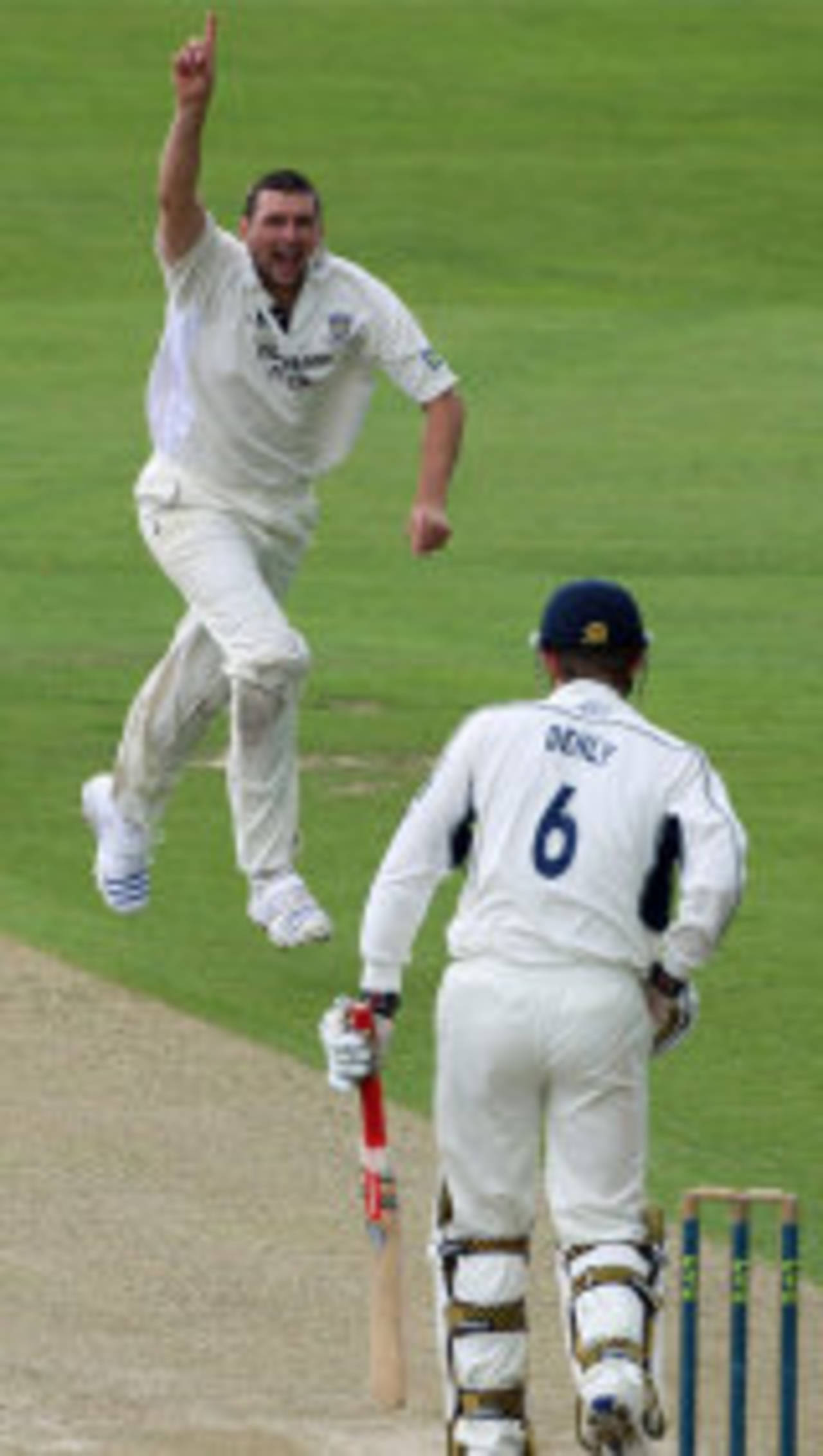The sweet taste of humble pie
If Durham land their first Championship pennant, Steve Harmison will be able to spend at least the next couple of months blowing enthusiastic raspberries in the general vicinity of the press box.
Rob Steen
Feb 25, 2013, 10:43 PM

Getty Images
All right, so there’s still a few yards left, but in all likelihood, sometime on Saturday, barring any small miracles at Trent Bridge or Taunton, the final day of this summer of foul weather and fairly glorious uncertainty will see Durham breast the tape first and hence carry off the County Championship pennant for the first time. In which case, we will have witnessed one of the more improbable turnarounds in recent cricket history. As a consequence, Steve Harmison, the man whose wickets are currently serving as a modicum of compensation for the agonies north-east soccer fans are enduring at the hands of the fast bowler’s beloved Newcastle United, will be able to spend at least the next couple of months blowing enthusiastic raspberries in the general vicinity of the press box.
Tucking into humble pie is part of a journalist’s lot. The tendency to be pressed into seeing the world in white and black, and ignoring those endless shades of grey, all too often incites rash, often inflammatory judgements that dispense with humanity while expertly, if barely, skirting the laws of libel. And because he can be so good, so intimidating, so damned irresistible, Harmison has attracted considerably more than his fair share of invective. The fact that, at heart, he is both articulate and a complete sweetie somehow makes him an even easier target.
When he and Matthew Hoggard were dropped by England after the first Test in New Zealand six months ago, it appeared to all intents and purposes that Harmy had cooked his own goose for the umpteenth and final time. Always a reluctant traveller, he seemed keener than ever to be anywhere else but on a cricket field, and bowled accordingly, the menace reduced to that of a toothless tabby. The arrival of a fourth child was proving a distraction, sure, but could the selectors really be expected to maintain any vestige of faith in someone of such apparent frailty? Forget those feline metaphors. If the caricature of a fast bowler is a rip-snorting, fire-breathing, no-holds-barring Tyrannosaurus Rex with a sturdy pair of arms, here was a Brontosaurus apt to intimidate purely by dint of size, and prone only to occasional lapses from strict vegetarianism.
Stuart Broad and James Anderson stepped into the breach with such effectiveness that England rebounded to take the series. Surely there would be no way back now for this most exasperating of cricketers, no stay of execution. Yet Harmison remained a contracted player, and the new selection trio hung on in there, consoling themselves no doubt in the knowledge of his uniqueness. After all, when the moon is in the seventh house, the planets are adequately aligned and the mood takes him, no active bowler can generate the same sort of bullying, leg-jellying bounce. Go back to Durham and take some wickets, they told him. The worst that could happen would be that he would respond like so many before him and fail to muster sufficient enthusiasm for the dimmer lights and lesser stages.
Instead, back on the green, green grass of the Riverside, he rumbled in with venom time after time while Hoggard, given the same brief, struggled to find his groove for Yorkshire. Again and again Harmison struck when it mattered, in all formats, and with sufficient consist ency to earn a Test recall against South Africa. The series may have been lost, the tourists mentally on the plane, but with the exception of Andrew Flintoff’s rediscovered mojo, there was no more rewarding sight for English eyes all season than the bite and spite Freddie’s pal brought with him to The Oval, along with that oft-elusive rhythm and control.
That Kevin Pietersen was able to talk Harmison into rescinding his premature retirement from one-day internationals testified both to the new captain’s powers of persuasion and the bowler’s newly relocated peace of mind and renewed ambition. And while the rest of the contracted quicks took a breather once the ODI series was won, Harmison kept his engine going, bringing Durham to the brink of history. Maybe the prospect of those Stanford millions turbo-charged his battery, but so what? He’s in it for the quids, not the kicks.
Speaking as one who had written him off, it gives me an unseemly degree of pleasure to tuck into that humble pie. It’ll taste even juicier if he can help bring back the Ashes.
Rob Steen is a sportswriter and senior lecturer in sports journalism at the University of Brighton